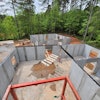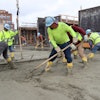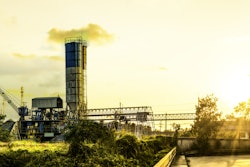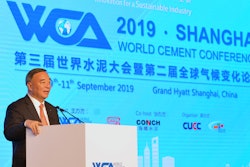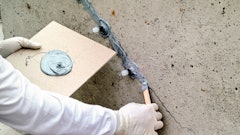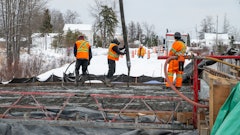Urgent action in three key areas could save around 900 million tonnes of CO2 annually by 2030.
Ian Riley, World Cement Association CEO, will this week be speaking at the Sustainable Innovation Forum (SIF), part of COP26, to outline three key actions governments around the world can take right now that will significantly accelerate the cement and concrete industry’s progress towards net-zero and beyond.
For an industry that contributes around 7% to global carbon emissions, the need to decarbonize quickly is critical if worldwide efforts to reduce and reverse global heating are to succeed.
Ian Riley will be speaking at COP26 at the Sustainable Innovation Forum, part of the Innovation Zone hosted by Climate Action.
To join the session, entitled ‘Deep Decarbonisation: Action for the Big Emitters’, in-person or online at 10:25 am GMT on Wednesday, November 10, please register at https://events.climateaction.org/sustainable-innovation-forum/registration/register-interest/.
Riley will tell delegates at COP26 that not only is a net-zero cement industry achievable, new technologies for carbon-negative concrete are emerging that can remove CO2 that is already in the atmosphere. But for this to happen, governments around the world need to take action in three key areas, to encourage faster adoption of low-carbon technologies:
- Promote a market for low-carbon concrete by encouraging its use in publicly-funded building projects
- Review and update product standards to allow low-carbon concrete to be used in a wider range of applications
- Create the right market incentives for developing and using low-carbon cement and concrete technologies, via carbon pricing, subsidies or other economic mechanisms
“The pathways to net-zero will be different for every cement plant. However, there are a few key measures which governments can adopt that will have a rapid and lasting impact on the pace of global uptake of all these measures,” explains Ian Riley.
“These measures can be implemented at low cost and will stimulate innovation and rapid scaling of new technologies. For governments looking for effective measures they can take today that will help deliver major and lasting emissions reductions in the next decade, the cement and concrete industry is a great place to start,” he adds.


